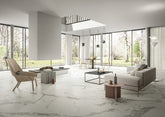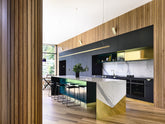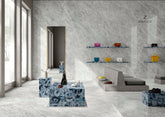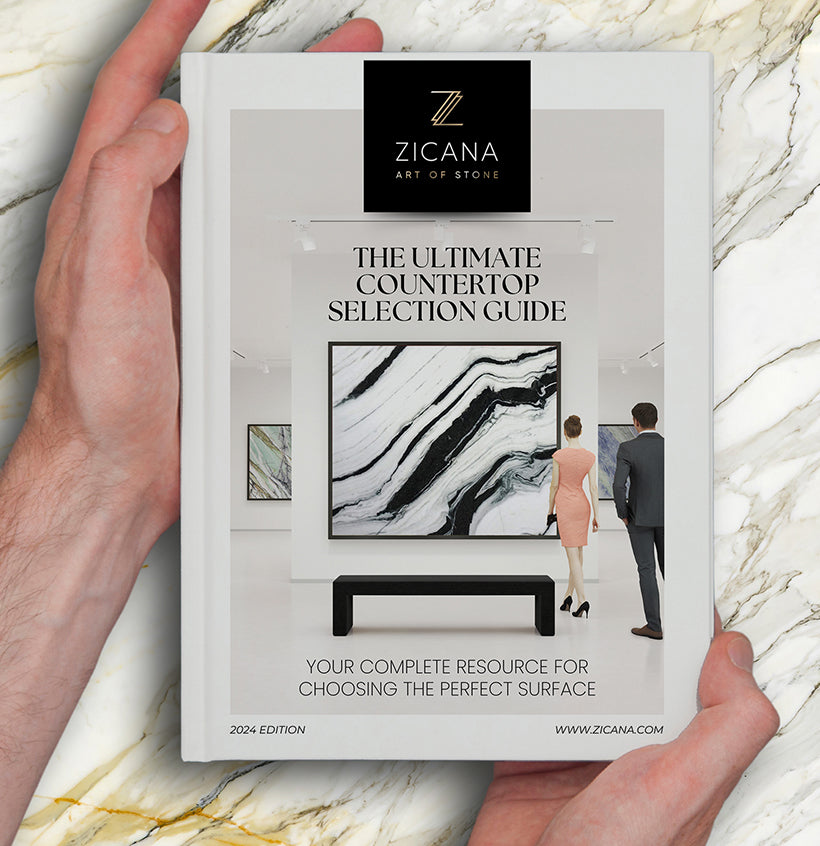Is Dekton Better Than Quartz for Luxury Stone Surfaces?
When designing a luxury kitchen, bathroom, or living space, one of the most critical decisions lies in the stone surface you choose—a surface that not only speaks volumes about your taste but also meets the performance expectations of the space. Among the leading contenders are Dekton and quartz. But the question that continually surfaces among homeowners and design professionals alike is this: is Dekton better than quartz? The answer depends on your lifestyle, design vision, and priorities. At Zicana Boutique, where we curate the world’s most exquisite surfaces, we break down this nuanced comparison to help you navigate your decision with clarity and confidence.
Understanding the Materials: Dekton vs. Quartz
Dekton is a sintered stone, composed of raw materials including porcelain, quartz, and glass, compressed under extreme pressure and heat to create one ultra-compact surface. It mimics natural processes in a matter of hours—what takes nature thousands of years. The result is an incredibly durable and resistant material suitable for both indoor and outdoor applications.
Quartz surfaces, by contrast, are engineered using natural quartz crystals blended with resin and pigments. At Zicana, we proudly offer exquisite quartz options through our curated Quartz Slabs Collection including revered brands like Silestone Quartz Collection and Compac Quartz Collection.
Durability and Resistance
When it comes to performance under pressure—literally—Dekton stands in a league of its own. Thanks to its high compression manufacturing process, Dekton is extremely resistant to scratches, stains, UV rays, and high heat. It can go from your outdoor kitchen island in the sun to your indoor waterfall island without missing a beat. Quartz is also highly durable and scratch-resistant, but it is more susceptible to UV damage and prolonged exposure to high heat. This makes Dekton a better choice for outdoor use and spaces where hot cookware makes regular appearances.
For spaces requiring optimal resistance to wear, especially in high-traffic or commercial environments, Dekton often outpaces quartz in longevity.
Aesthetics and Design Versatility
Luxury interior design begins with visual impact—and both materials offer stunning aesthetic options. Today's engineered quartz surfaces provide elegant, natural stone-inspired looks including marble veining, concrete textures, and bold colors. At Zicana Boutique, our Tessa Quartz Collection and Raphael Quartz Collection capture the beauty of natural formations with meticulous artisanal craftsmanship.
Yet, Dekton brings an architectural scale and visual elegance that many designers find especially compelling. With ultra-large slab sizes, seamless panels, and matte or high-gloss finishes, it allows for expansive applications across counters, walls, floors, and facades—all with striking continuity. This versatile surface caters to the minimalistic and modern design enthusiast while also paying homage to timeless classics in marble and concrete aesthetics.
For discerning clients drawn to unique finishes and visual fluidity, Dekton delivers unmatched versatility.
Maintenance and Lifestyle Suitability
A non-negotiable for today’s busy households and commercial spaces is ease of maintenance. Both Dekton and quartz are non-porous, making them resistant to staining and bacteria build-up. However, Dekton goes further by requiring no sealing or special cleaners, and can be cleaned effortlessly with common household products. It’s also chemical-resistant, meaning it handles spills from red wine, coffee, bleach, and lemon with grace.
Quartz does require a bit more care, especially to avoid damage from excessive heat or harsh chemicals. While not high maintenance by any means, quartz surfaces can discolor under UV exposure and may need resin care over time.
For high-performance, low-commitment durability, Dekton wins in the maintenance category.
Value and Investment Insight
When considering material selection, value is more than just cost—it is a long-term investment in beauty, performance, and functionality. Both quartz and Dekton offer premium surface solutions, but the ROI depends on use, location, and design goals. Quartz can often be more budget-friendly, especially for indoor-only projects or clients seeking elegant engineered surfaces at a balanced price point.
Dekton, while generally on the higher end of the spectrum, justifies its price tag with virtually zero wear under pressure, extreme durability, and visual prestige. For luxury projects or demanding environments, choosing Dekton is a statement of quality and foresight.
To bring even more value to your design journey, Zicana Boutique is proud to offer our curated Exclusive Offers Collection—featuring limited-time pricing on premium materials. Plus, new clients can Use Promo Code WELCOME100 for $100 off any order over $1,000.
Use Case Recommendations
- For indoor kitchen countertops in statement tones, either Dekton or quartz from the Spectrum Quartz Collection could be ideal.
- For outdoor kitchens, patios, and rooftops, Dekton outshines quartz thanks to its UV and weather resistance.
- For fireplaces and feature walls, both materials work—but Dekton allows for seamless full-wall slab installations for dramatic design effects.
- For minimalist, ultra-modern applications, Dekton’s large formats and architectural appeal are hard to beat.
FAQs: Dekton vs. Quartz
Is Dekton more expensive than quartz?
In most cases, yes. Dekton tends to be priced higher per square foot due to its advanced manufacturing and performance attributes. That said, the long-term durability and versatility of Dekton materials can make them more cost-effective over time in demanding environments.
Can I use quartz outdoors?
Quartz is not ideal for outdoor use as prolonged exposure to UV rays can cause discoloration over time. Dekton, on the other hand, is UV-stable and performs beautifully outdoors, making it the superior option for exterior design elements.
Is Dekton easier to maintain than quartz?
Yes. While both are non-porous and stain-resistant, Dekton does not require sealing or special care, and it resists chemicals, heat, and abrasives more effectively than quartz surfaces.
Which surface offers more design variety?
Quartz currently offers a broader palette of colors and veining options, especially those mimicking natural stones. However, Dekton is rapidly expanding its aesthetic options and offers larger format slabs, suitable for uninterrupted design statements.
Ready to Elevate Your Surface Selection?
So, is Dekton better than quartz? For high-performance, low-maintenance, and architectural beauty in both indoor and outdoor settings, Dekton offers a compelling upper hand. However, quartz remains a sophisticated and cost-effective choice for many luxury interiors, particularly in controlled environments. At Zicana Boutique, our experts are here to guide you through every nuance of your surface selection—from aesthetics and durability to custom-fit applications.
Be sure to explore our Exclusive Offers Collection and Use Promo Code WELCOME100 for $100 off any order over $1,000. Discover your next timeless wonder at Zicana Boutique—where stone becomes an experience.



















